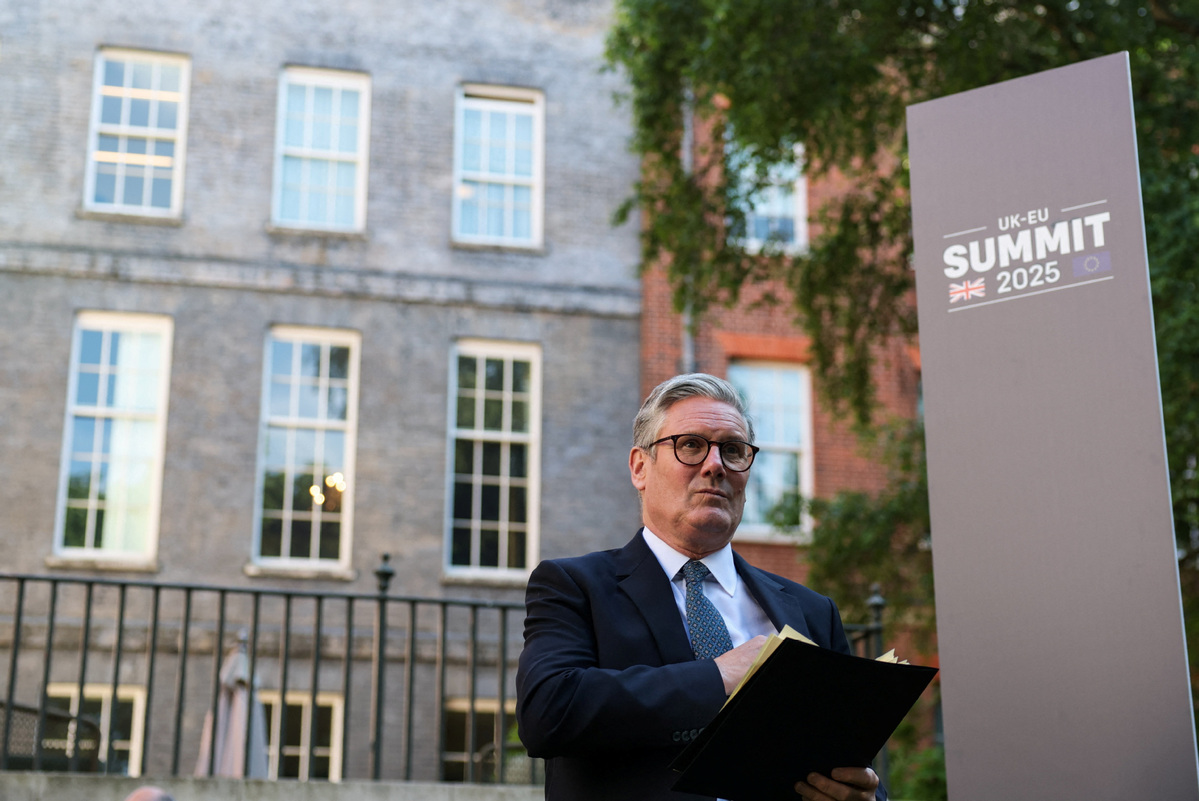Critics call UK's deal with EU a 'sellout'


Politicians and trade associations in the United Kingdom have criticized the country's government after a hugely significant summit with the European Union, and the unveiling of a new trade deal.
The summit in London on Monday, the first of its kind since the UK left the EU in 2020, included not only the trade deal announcement but an agreement on a new security pact, and discussion aimed at making it easier for young people to move internationally.
The session was aimed at "resetting" strained ties but critics said the trade deal, which grants UK businesses more access to EU markets and vice-versa, came at too high a price, with the government accused of becoming beholden to rules dictated by Brussels, and with EU fishing boats once again given access British waters.
Suella Braverman, a former Conservative Party home secretary, said it "let down our fishing community", while anti-EU Reform UK said it amounted to "the great British sellout".
While the government, which was elected last year on a promise to build "an improved and ambitious relationship with our European partners", said it wants regular summits, it has also been clear the deals do not mean it wants to rejoin the bloc, or that it will take the UK back into the EU's customs union, its single market, or its freedom of movement agreement.
But the assurances were not enough for some, with Conservative Party member of parliament and shadow secretary of state for Scotland Andrew Bowie saying on BBC Breakfast: "We shouldn't be rule takers from the European Union, we shouldn't be selling off our fishing industry to the European Union, and we should make sure no new money is being sent off to the EU."
He said an improvement in the relationship between Brussels and London was welcome, but "a full reset, I don't think is required".
Conservative Party leader Kemi Badenoch said the deal, which calls for some rationalization of rules and standards, means "we're becoming a rule-taker from Brussels once again".
And Reform UK leader Nigel Farage said letting EU boats fish in UK waters "will be the end of the fishing industry". His deputy, Richard Tice, said the party "will repeal this when we win the general election".
Elspeth Macdonald, chief executive of the Scottish Fishermen's Federation, said on the Good Morning Scotland television program that her 400 members will suffer because of the fishing deal, which she said amounts to a "total capitulation to the EU".
But others were more supportive, with Tavish Scott, chief executive of Salmon Scotland, the lobby group for Scottish salmon exporters, calling it a "breakthrough" and supermarkets saying it will lower prices.
Scott said the deal will "slash red tape and the time taken to get premium salmon to market".
The farmed fish is the UK's largest food export by value.
The UK and EU also agreed on Monday that UK travelers will get more access to faster e-gates that are usually reserved for EU passport holders, and that "pet passports" will be allowed, making it easier for UK travelers to take their pets on holiday.
The UK and EU also agreed a new security and defense partnership that paves the way for the UK defense industry to participate in the EU's proposed 150-billion-pound ($201-billion) Security Action for Europe defense fund.
European Council President Antonio Costa described the trade deal and the summit as "truly productive", saying "we have all succeeded". And European Commission President Ursula von der Leyen said the agreements amount to "an historic moment".
"And it is a success," she said. "We are turning a page, a new chapter in our unique relationship."
UK Prime Minister Keir Starmer said the agreements London reached with Brussels were good for the economy and jobs and were "the best of any country outside of the EU".

































